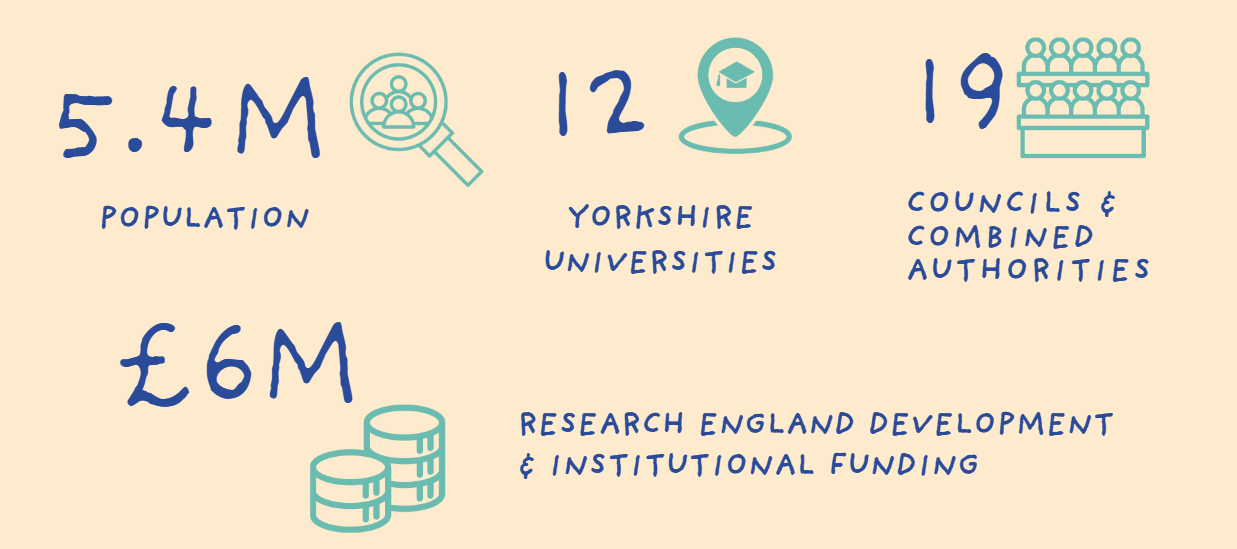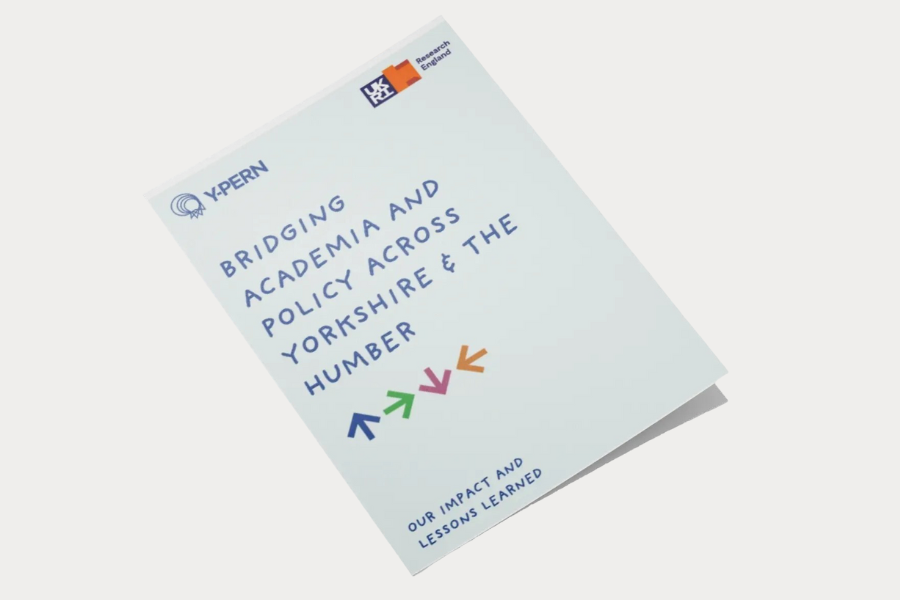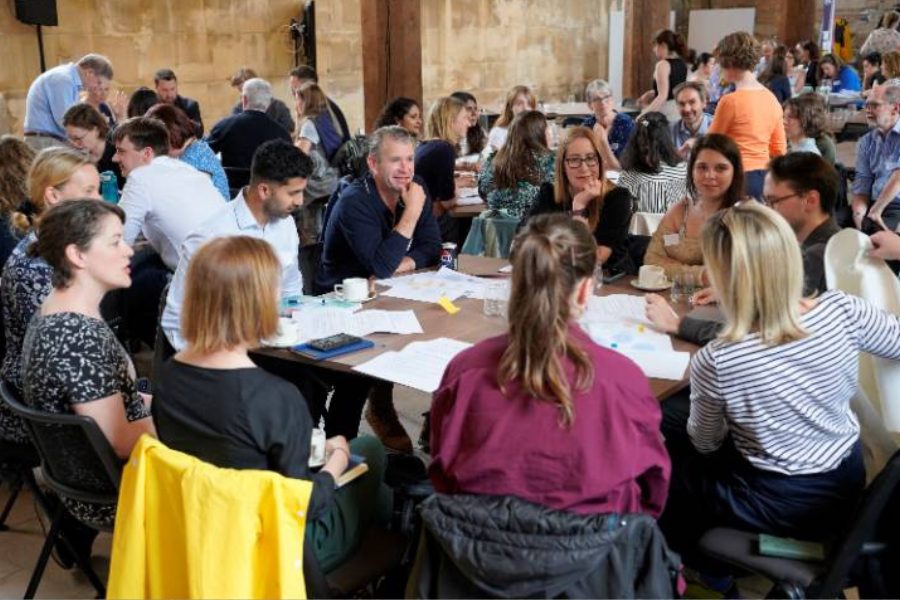Three-year report reveals ground-breaking collaboration between universities and policymakers drives regional development
Y-PERN’s 2025 Impact Report showcases three years of close collaboration between the region’s universities and policymakers that has transformed evidence-based decision-making across Yorkshire and the Humber.

Since its inception in 2022, Y-PERN has established itself as a critical bridge between the region’s universities and policymakers, fostering collaboration that harnesses Yorkshire and the Humber’s remarkable multidisciplinary academic expertise to address key policy challenges.
Together with our partners across our twelve universities, and wider network, we’re working on a shared endeavour towards regional supported through Y-PERN but recognising the region’s wider strength
Y-PERN has been fundamental to the Combined Authority, particularly in helping us to develop our Local Growth Plan. As a newly formed CA, we don’t have a large or established data resource in place and Y-PERN has helped to fill that gap and ensure our emerging strategies are evidence-led.
— Kate McHugh, Research and Evaluation Officer, York and North Yorkshire Combined Authority
Breaking Down Silos, Driving Action
Y-PERN’s innovative networked approach is successfully transforming academic engagement with policy, creating a “live laboratory” for regional development. The initiative has leveraged over £6 million in Research England funding to support evidence-led policymaking across diverse areas including skills development, childcare, female entrepreneurship, homelessness, and flood risk management.

A Model for the Future
As Yorkshire and the Humber continues to evolve with devolution – now with all regions covered by Mayoral Combined Authorities – Y-PERN’s collaborative model demonstrates the significant benefits that can be achieved when academia, policymakers, and communities unite under a common purpose for regional development.
“The Devolution Project has been a successful collaboration between Yorkshire and Humber Councils and Y-PERN, showcasing the region’s commitment to enhance local governance, drive innovation and support collaboration via devolution. At a time where devolution continues to build momentum, with all areas of the Yorkshire and Humber region now covered by an MCA or Strategic Authority, this project has been helpful in demonstrating the region’s strong support for collaboration and the potential for devolution to bring significant benefits to local communities.“
Florence Drew, Head of Chief Executive’s Office, Office of the Chief Executive Barnsley Metropolitan Borough Council
As phase one of Y-PERN’s programme draws to its end and enters its transition year in 2025-2026, the report looks to the future and evaluates the impact that Y-PERN has had. It highlights Y-PERN’s unique Policy Fellow model, which embeds academic researchers directly within policy organizations, creating trusted partnerships that enhance both research quality and policy impact. This approach has proven particularly effective in providing specialised expertise where capacity is limited.
“Our findings indicate that the policy fellow role is crucial, as is a knowledge brokerage approach and Yorkshire Universities’ contribution. We found early signs of impact on policy development, with higher education also emerging as an effective alternative to consultants in certain contexts.“
– Dr Bridget Sealey, Stephen Meek and Claire Packman (with advisory support from Prof Kathryn Oliver), Sealey Associates (Y-PERN Evaluation team)
For more information about Y-PERN’s impact and future initiatives, visit our Impact report: Bridging academia and policy across Yorkshire & the Humber.






